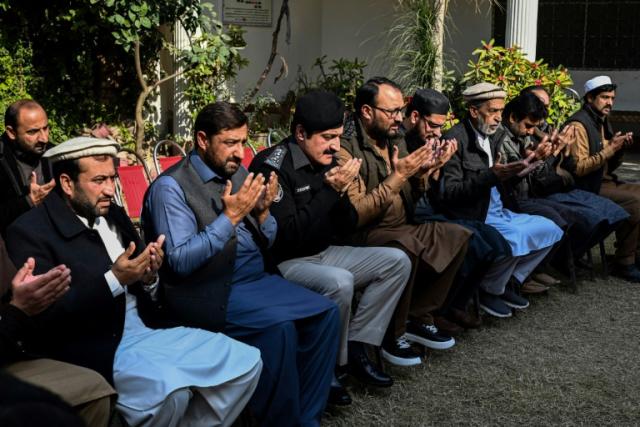
PESHAWAR, Pakistan, Feb 1, 2023 (BSS/AFP) - A mosque blast that killed 101
people -- mostly police officers -- in northwest Pakistan this week has put a
city long scarred by violence back on edge, residents said Wednesday.
A suicide bomber slipped undetected into a highly sensitive police
headquarters and detonated explosives among a row of worshippers in the
compound's mosque on Monday, causing a wall to collapse and crush officers.
It is Pakistan's deadliest attack in five years and harks back to more than a
decade ago when Peshawar, a city near the former tribal areas that borders
Afghanistan, was at the centre of rampant militancy.
"The main fear is a second attack, another blast ... a suicide bomber may
blow himself in a market," said 55-year-old Naeemullah Jan, a building
contractor in the city.
The city's police chief said the mosque blast was a revenge attack against
the police force who are on the frontline fighting a resurgence in militancy
since the Afghan Taliban came to power across the border.
Authorities are investigating how a major security breach could happen in one
of the most tightly controlled areas of the city, housing intelligence and
counter-terrorism bureaus, and next door to the regional secretariat.
"Life in the city has become difficult. Police are stopping us at every
checkpoint," said Faisal Khan, 39, a salesman who said he is now avoiding
going to mosque and praying at home.
- 'Perfect storm' -
Peshawar, the provincial capital of Khyber Pakhtunkhwa, was like much of the
region severely affected by a wave of horrific violence carried out by the
Pakistani Taliban after they emerged in 2007.
Years of attacks on schools, civilians and places of worship, finally ended
with a military clearance operation that began in 2014, pushing the
insurgents into the mountainous border and Afghanistan.
Violence drastically declined until the withdrawal of US and Nato troops in
Afghanistan in 2021 led to the return of the Taliban in Kabul, emboldening
militant groups in the border region.
The Pakistani Taliban, known as the Tehreek-e-Taliban Pakistan (TTP), are
back with a new strategy -- targeting stretched security forces in low level
attacks.
The group have distanced themselves from this week's mosque blast but police
are investigating whether an on-off TTP affiliate was the culprit.
"Earlier I used to feel safe near the police, now when a police car or
officers pass near me, I fear in my heart that they might be attacked and I
will also be hurt," 55-year-old Muhammad Haneef Awan told AFP.
Meanwhile, the country is almost paralysed by a a dual economic and political
crisis that has caused the cost of living to soar ahead of general elections
due by October.
Politicians from the ruling coalition parties and former prime minister Imran
Khan's opposition group -- which earlier this month pulled out of ruling
Khyber Pakhtunkhwa province to pile pressure on the government -- have blamed
each other for the worsening security situation.
"This 'perfect storm' presents an ideal opportunity for the TTP and others of
their ilk to strike at the state," read an editorial in the leading English
newspaper Dawn on Wednesday.
Defence Minister Khawaja Asif said the government's National Security
Committee will meet soon to discuss another military operation against the
insurgent groups.